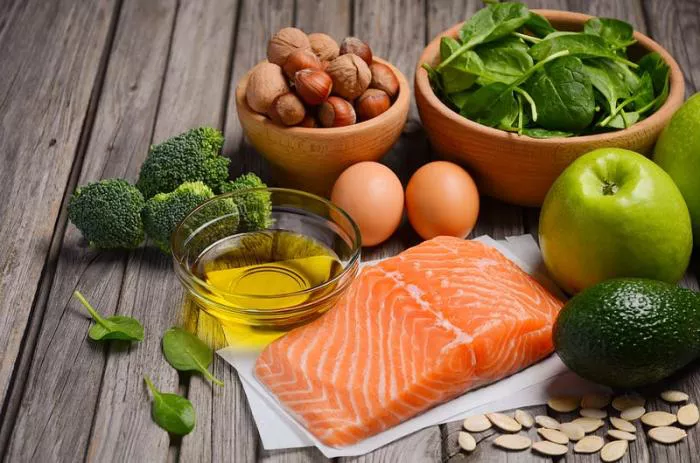Breastfeeding is a natural and essential process for both mother and baby. However, many mothers face challenges with milk production. Diet plays a crucial role in boosting breast milk supply. Eating the right foods can help ensure your baby gets the nourishment they need. This article explores key foods, nutrients, and practical tips to support lactation.
Importance of a Balanced Diet for Breastfeeding
A balanced diet is the foundation of healthy breastfeeding. It ensures that your body has the nutrients required to produce sufficient milk. When you eat well, your body works efficiently, and milk supply often improves naturally.
Breastfeeding mothers need extra calories. You should consume about 400-500 more calories per day than you did before pregnancy. These extra calories should come from nutrient-rich foods rather than empty calories from processed snacks.
Foods That Boost Milk Production
Certain foods, known as galactagogues, can stimulate milk production. Including these in your diet can help increase your supply.
1. Oats
Oats are one of the most well-known foods for boosting milk production. They are rich in iron, which is important because low iron levels can reduce milk supply. You can enjoy oats as oatmeal, in smoothies, or as oat-based snacks.
2. Fenugreek
Fenugreek seeds have been used for centuries to support lactation. They contain phytoestrogens, which can enhance milk production. You can add fenugreek to your meals or drink it as a tea.
3. Fennel Seeds
Fennel seeds are another traditional remedy. They are believed to increase milk supply and also help with digestion. You can chew fennel seeds, add them to dishes, or brew fennel tea.
4. Brewer’s Yeast
Brewer’s yeast is packed with B vitamins, iron, and protein. It is often used in lactation cookies or smoothies. It can help increase energy levels, which is crucial for breastfeeding mothers.
5. Leafy Green Vegetables
Leafy greens like spinach, kale, and broccoli are high in calcium, iron, and folate. These nutrients support overall health and improve milk supply. Aim to include a variety of greens in your daily meals.
6. Nuts and Seeds
Almonds, walnuts, flaxseeds, and chia seeds are excellent for breastfeeding mothers. They provide healthy fats, protein, and essential minerals. These nutrients are important for both you and your baby’s growth and development.
7. Whole Grains
Whole grains like brown rice, quinoa, and barley are rich in complex carbohydrates. They provide sustained energy and support milk production. Whole grains also contain B vitamins and fiber.
8. Salmon
Salmon is a great source of omega-3 fatty acids and protein. These nutrients are vital for your baby’s brain development. Eating fish like salmon can help improve the quality and quantity of your milk.
9. Legumes
Legumes such as lentils, chickpeas, and beans are rich in protein, iron, and fiber. They are especially helpful for vegetarian or vegan mothers. Legumes can be added to soups, salads, or casseroles.
10. Sweet Potatoes
Sweet potatoes are rich in beta-carotene, which your body converts into vitamin A. This vitamin is crucial for milk production and your baby’s development. They are also a good source of energy and fiber.
Essential Nutrients for Lactation
In addition to specific foods, certain nutrients are key for increasing and maintaining milk supply. Here are some essential nutrients and their food sources:
Protein
Protein is the building block of breast milk. You need about 65-75 grams of protein per day while breastfeeding. Good sources include lean meats, eggs, dairy products, legumes, and nuts.
Calcium
Calcium supports your baby’s bone development and maintains your own bone health. Dairy products, leafy greens, tofu, and fortified plant-based milks are excellent sources of calcium.
Iron
Low iron levels can lead to fatigue and reduced milk supply. Include iron-rich foods like red meat, poultry, fish, beans, and fortified cereals in your diet.
Omega-3 Fatty Acids
These fatty acids are essential for your baby’s brain development. You can find them in fatty fish like salmon and sardines, as well as in flaxseeds and walnuts.
Hydration
Staying hydrated is crucial for milk production. Aim to drink at least 8-10 glasses of water a day. Herbal teas and soups can also help with hydration.
Foods to Avoid or Limit
Some foods can negatively affect milk supply or your baby’s health. It’s important to be mindful of these:
Caffeine
While moderate caffeine intake is generally safe, too much can make your baby irritable. Limit your intake to about 200 mg per day (about one cup of coffee).
Alcohol
Alcohol can reduce milk production and affect your baby’s development. It’s best to avoid it or consume it occasionally and in moderation.
Processed Foods
High-sugar and high-fat processed foods offer little nutritional value. They can also lead to weight gain and fatigue.
Certain Herbs
Some herbs, like peppermint and parsley, may decrease milk supply. Be cautious with herbal teas and supplements.
Practical Tips for Meal Planning
Meal planning can help you stay on track with a healthy diet. Here are some tips:
Prepare in Advance
Cooking and preparing meals ahead of time can save you stress. Consider batch-cooking soups, stews, and casseroles.
Snack Smart
Keep healthy snacks on hand. Nuts, fruits, yogurt, and homemade granola bars are good choices.
Stay Consistent
Eating regularly helps maintain energy levels and supports milk production. Don’t skip meals, and listen to your body’s hunger cues.
Conclusion
What you eat directly affects your milk supply and your baby’s health. By focusing on nutrient-dense, whole foods, you can boost lactation and ensure your baby gets the best start in life. Incorporating galactagogues, staying hydrated, and avoiding harmful substances can make a significant difference. With a balanced diet and mindful choices, breastfeeding can become a rewarding and fulfilling experience for both you and your baby.
Related topics:


